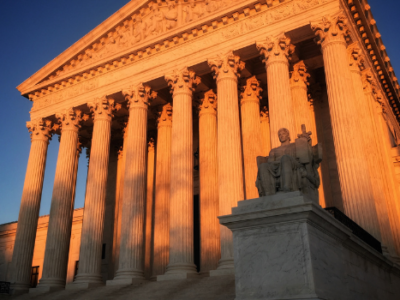An Update for Employers and Employees Regarding the Federal Vaccine Mandates
January 4, 2022
By David L. Walker, Jr.
On September 9, 2021, in the wake of the U.S. debacle in Afghanistan, President Biden announced that he was imposing a vaccine mandate that would affect over 100 million Americans.
The President’s decree culminated in the issuance of an Emergency Temporary Standard (ETS) by the Occupational Safety and Health Administration (OSHA) on November 5, 2021, which requires all employers with more than 100 employees to require proof of vaccination from their employees and require weekly testing of unvaccinated employees, as well as other regulatory procedures or face significant fines.
In conjunction with the OSHA announcement, the Department of Health and Human Services (HHS) also decreed that all health and medical facilities that receive any Medicare or Medicaid funding would be cut off from all federal funding if they employed any unvaccinated workers. The deadlines for employers and healthcare facilities to fully comply with both the OSHA mandate and the HHS mandate was scheduled for January 4, 2022.
After a series of rulings from various federal district courts and federal courts of appeals, which enjoined the OSHA and HHS mandates in whole or in part, on December 17, 2021, the Sixth Circuit Court of Appeals issued an order dissolving all previously entered injunctions, which had previously stayed enforcement of the OSHA mandate. As to the HHS mandate, the courts have split: It has been enjoined in twenty-five (25) states, including Georgia, but it remains enforceable in twenty-five (25) other states.
The U.S. Supreme Court has announced that it will take up arguments on both the OSHA and HHS mandates on January 7, 2022. In light of these developments, OSHA has issued revised guidance requiring employers to have fully developed compliance programs in place by January 10, 2022 and requiring full implementation of the mandate by February 9, 2022. HHS has announced that healthcare providers must fully implement the HHS mandate on or before February 28, 2022 in the twenty-five (25) states where its enforcement has not been enjoined. Of course, all of these decrees rest upon the ultimate decision of the nine justices of the Supreme Court regarding the constitutionality and enforceability of the mandates.
As the Supreme Court prepares to hear arguments on the mandates this week, its decision will have a significant and multi-dimensional impact upon employees and employers across the country. The attorneys at Flint, Connolly & Walker, LLP are closely following these developments and are prepared to advise clients as they work to navigate through these complex regulatory waters.
David L. Walker, Jr. is a partner with Flint, Connolly & Walker, LLP. He focuses his legal practice to collaborate with business owners, mid-sized and closely held corporations, as well as real estate owners, developers, and contractors.

